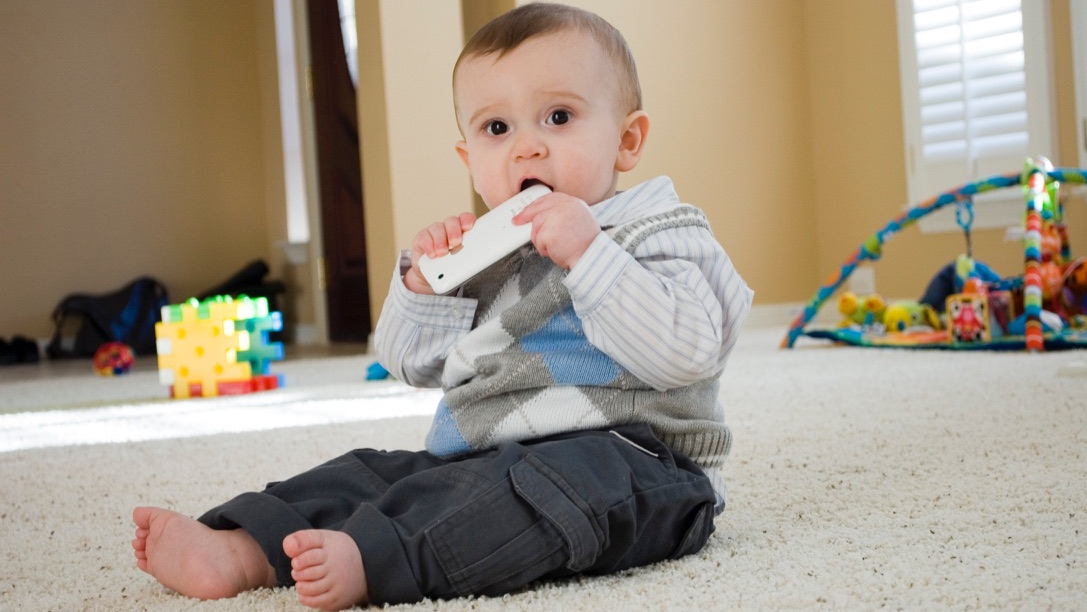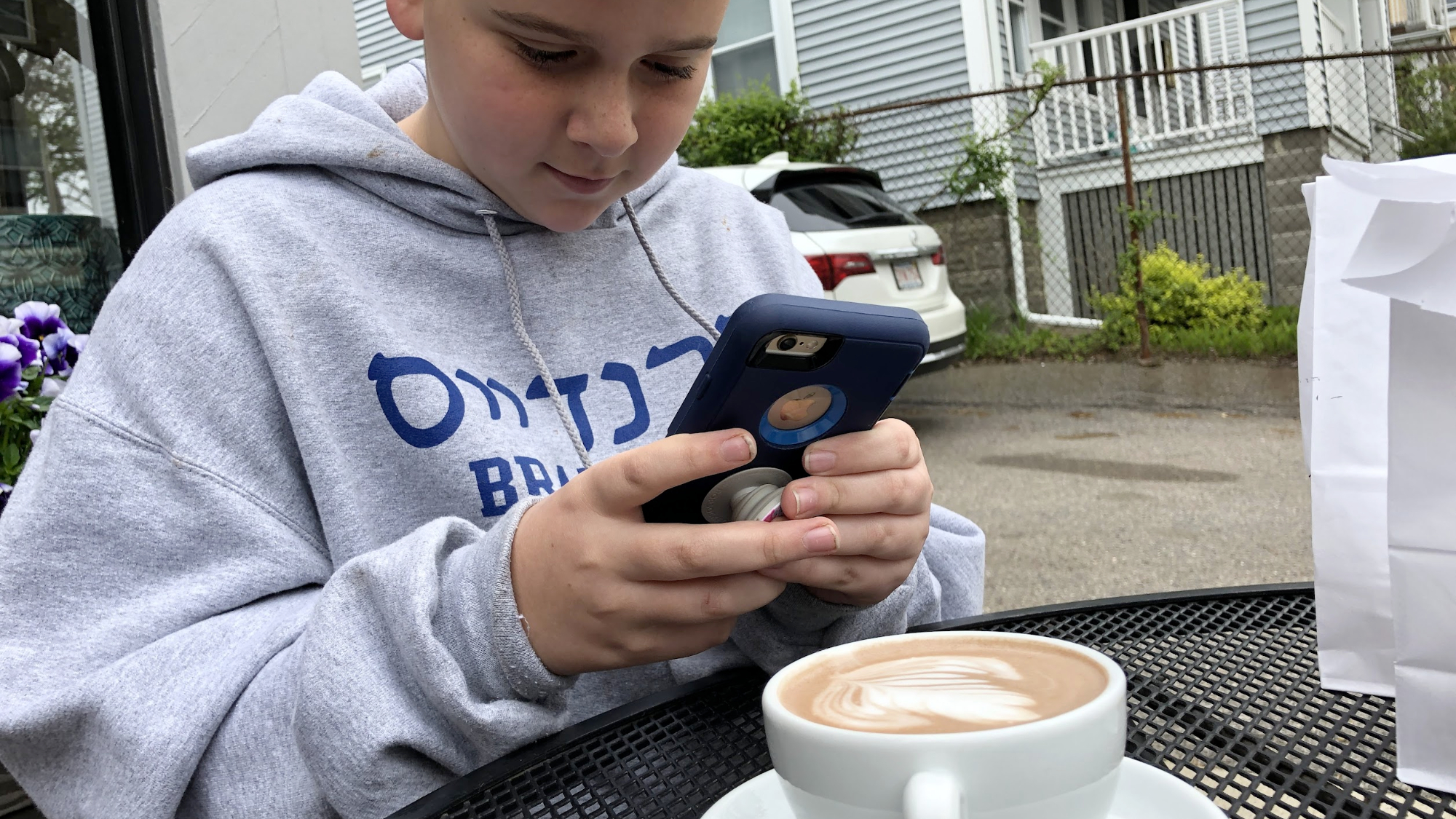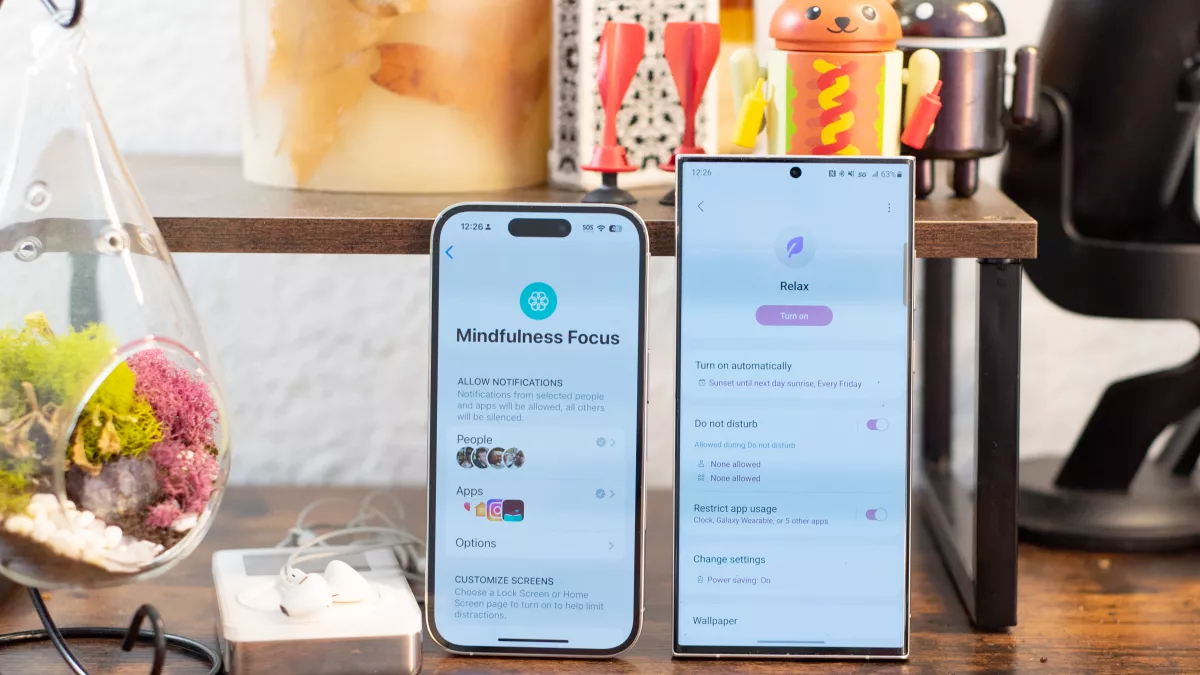A parent's guide to sending your child to school with a smartphone
It's not a question of if, but when

I started teaching in New York City in October, 2001, a month after the September 11 attacks. For classrooms across the country, September 11 ended the cell phone debate forever. My child must have a phone on them, parents said, in case of an emergency just like that one.
Recently, an article in The Atlantic perhaps rightly suggested that cell phones should be banned from schools. There are myriad reasons, from learning achievements to mental health concerns, and all of them are valid. Unfortunately, the argument has come too late. Pandora’s box had nothing on 5G networks.
Asking students to stop bringing phones to school would be like asking them to eat a balanced breakfast every day and get eight hours of sleep. It would make a huge difference in academic performance. It also seems like a totally unreasonable expectation in today’s real world.

I’ve alternated between my careers in tech journalism and teaching, and I recently spent a year in the classroom in a school near Washington, D.C.. I gave a lot of thought to how I wanted to handle smartphones in my class, as a phone reviewer and enthusiast, but also as an experienced teacher with academic goals, and finally as a parent, worried about the effect of phones on my own kid.
Here are guidelines about when to buy a phone, what phone to buy, and what to tell your child about smartphones and their place in school.
Buy your child a phone when you need them to have one
My kiddo is currently 14 and he has had a smartphone for four years. If 10 seems young to have a smartphone, I moved away for a job for a while and wanted to keep in constant contact with him, so I bought him an iPhone 11 on the same day I bought myself an iPhone 11 Pro Max.

He knew how to use a phone much earlier than that, because I, like most parents, will casually hand my phone to a toddler to play with like it’s a toy. But he didn’t have his own phone until I needed him to have one.
Get daily insight, inspiration and deals in your inbox
Sign up for breaking news, reviews, opinion, top tech deals, and more.
If your kid is bugging you to buy them a phone, that’s the answer I suggest. “When can I have a phone?” You can have one when I need you to have one. No child actually needs a smartphone. If your life won't be improved by your child's smartphone, neither will theirs.
When should I buy my child a phone?
When should I buy my child a smartphone and let them use it on their own and take it to school with them?
You should buy your child a phone when you need them to have a phone. When you need to get in touch quickly or know their location, it is useful for your child to have a smartphone.
Reasons why it's useful for your kid to have a phone
- You can always get in touch with them. If they ignore you, you can just lock their phone remotely. They’ll get the hint.
- Every phone has built-in tracking so you can keep tabs on their location, and it’s easy to find a phone if they lose it.
- Keep a calendar and schedule for your family using technology. Let your child wake themselves in the morning.
- Enjoy photography before they get obsessed with selfies. They might capture family memories you miss.
- If they ever get lost, a smartphone and Maps will help them find their way. Plus, it's never too early to learn to read a map.
The best phone to buy: none, if you can help it

The best phone to give your kid is your old phone. You know how to use it. You know how to troubleshoot if things go wrong. The least complicated option is probably the one you already have.
Your second choice should be an older, cheaper, or more rugged version of whatever you have. If you have an iPhone 14, consider an iPhone 12, which Apple still sells, or look on Amazon for a Renewed iPhone 11. Those are great phones that still get the latest software updates, so your kid won’t feel left our when friends are sending iMessages and AirDrops.
If you have an Android phone, that’s even easier. There are tons of options for Android devices. I’d avoid a phone that has a glass front and back, as those are more brittle, but otherwise you can find solid and affordable devices from Samsung, Motorola, and even Nokia. Check out the Moto G Stylus, which slots a simple pen into the phone so your kid can jot notes and write doodles, old school style.
To help your kid focus, engage the Focus modes

You can limit what your child can do with their phone and set up barriers against harmful content, but in the long run, your kid is going to need to learn self control. Focus modes are a good way to teach this.
A Focus mode limits what apps you can use and what alerts and notifications you receive. You set up Focus modes yourself, and you can set up different modes for Work or School, for a Theater, or for bedtime.
When you try to open an app that is forbidden by the Focus mode, the phone will stop you, but it isn’t a permanent lock. You can disable the Focus mode with a few clicks. The point is that you remind yourself to Focus, but you keep your self control.
It may not work, and you may need more aggressive tactics if your child is more distracted. But if you want to help them learn to control their phones in the same way adults need to learn to avoid distractions, Focus modes are the tools that I use for my work and personal life, and it’s a great start.
The people in front of us are the priority
That’s how an adult should handle the situation
If there is an overall philosophy I would teach kids about smartphone use, it’s that the people you are with in person get priority over anyone who exists on your phone. That doesn’t mean you have to give them your undivided attention, but you should give them your respect.
If you need to take a phone call or write a message, you should make sure that it is acceptable to the people you are with and the situation. Read the room, literally and figuratively. Ask permission if you must.
When I was a teacher, my students got emergency phone calls, and sometimes parents would simply call to ask a dumb question, like where they left the remote control. When my students were polite and asked to be excused to take a call, I let them go. That’s how an adult should handle the situation, and that’s the best I can expect.
It's rude to wear headphones when people are speaking

Of all the problems I had with smartphones in my classroom, the most prevalent was clandestine headphone use. Wireless headphones like AirPods are almost invisible, and they can be secreted to and from the ear without much notice.
The most effective tool I had to fight headphones was reminding my students that they were being rude. They didn’t realize. It is actively rude to wear headphones when somebody else is speaking to you, or expecting you to listen.
Even when the headphones are turned off? Yes, I would tell them. They honestly didn’t know, but most of my students did not want to be rude.
Kids will sneak a peak at a phone and try to get away with occasional bad behaviors because they don’t think these small infractions matter. They don’t believe this behavior is rude. You know your kid isn’t rude, and that’s true of most kids. They may not know the way their behavior is perceived. It’s annoying to sneak a message, but it’s downright rude to wear headphones when your teacher is teaching.
A smartphone can be the most useful tool you have
One of my favorite tricks for ending smartphone distractions in a hurry was to give my students a heap of work to do on their smartphones. I don’t ignore the technology or shun the smartphone. I embrace it.
I use my smartphone as a tool every day in every possible way, and nobody in my work or personal life has reprimanded me for it. Why shouldn’t students be encouraged to use smartphones if their smartphone is the best tool for the job?
I’d have my students scanning QR codes, or looking through online articles, or using Quiz apps to answer questions. Anything that takes up a full screen means they can’t send messages or play games or watch TikTok.

Phil Berne is a preeminent voice in consumer electronics reviews, starting more than 20 years ago at eTown.com. Phil has written for Engadget, The Verge, PC Mag, Digital Trends, Slashgear, TechRadar, AndroidCentral, and was Editor-in-Chief of the sadly-defunct infoSync. Phil holds an entirely useful M.A. in Cultural Theory from Carnegie Mellon University. He sang in numerous college a cappella groups.
Phil did a stint at Samsung Mobile, leading reviews for the PR team and writing crisis communications until he left in 2017. He worked at an Apple Store near Boston, MA, at the height of iPod popularity. Phil is certified in Google AI Essentials. He has a High School English teaching license (and years of teaching experience) and is a Red Cross certified Lifeguard. His passion is the democratizing power of mobile technology. Before AI came along he was totally sure the next big thing would be something we wear on our faces.